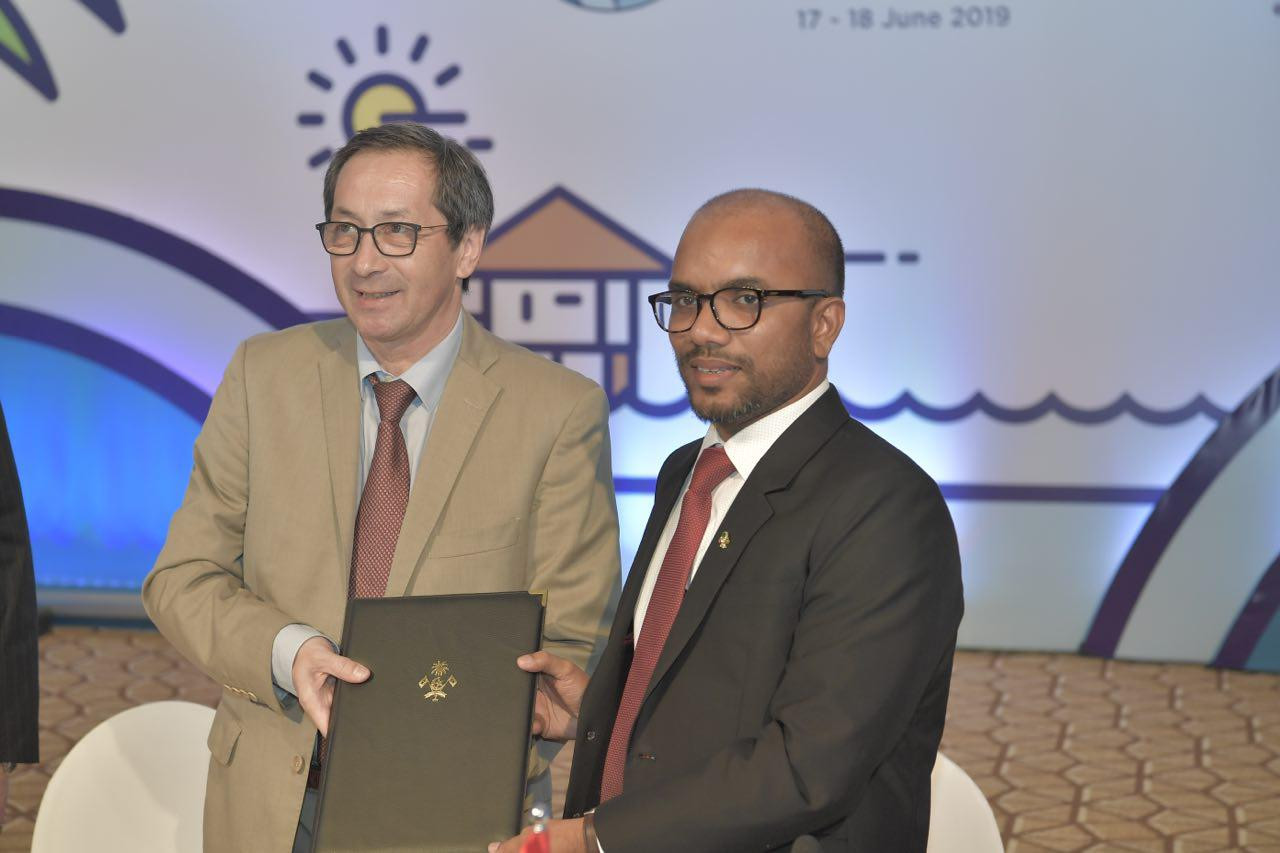
The Agreement was signed in the margins of Maldives' Partnership Forum by EU Ambassador to Sri Lanka and the Maldives, H.E. Tung-Lai Margue and Minister of Finance Hon. Ibrahim Ameer.
Ambassador Margue, reaffirming the EU's role as a like-minded partner in the global fight against the adverse impacts of climate change, said "The EU welcomes the opportunity to assist the Government of Maldives in fulfilling its international commitments, while supporting its citizens in adapting and building a climate resilient economy and society. The use of renewable energy resources will not only reduce greenhouse gas emissions, but will have important energy security co-benefits, as it will help Maldives move away from an overreliance on fossil fuel imports, which makes the country highly vulnerable to global fuel price fluctuations".
Maldives remains one of the most vulnerable countries to climate change pressures, and its communities face an existential threat on a daily basis.
Minister Ameer thanked the European Union for the generous assistance and stated that this assistance will be a great contribution towards the ongoing “Preparing Outer Islands for Sustainable Energy Development” (POISED) project in Maldives, in implementation of solar diesel battery hybrid systems in two of the atolls.
The EU's funding will co-finance the on-going POISED project and will equip approximately 15 - 20 islands with hybrid PV-diesel systems to meet at least 30% of their daytime peak demand, thereby significantly reducing the requirement for diesel to generate electricity in the outer islands.
Significant financial resources are needed to implement the Paris Agreement and help developing countries deal with climate change. The EU, its Member States and the European Investment Bank are together the biggest contributor of public climate finance to developing countries, giving EUR 20.4 billion in 2017 alone.